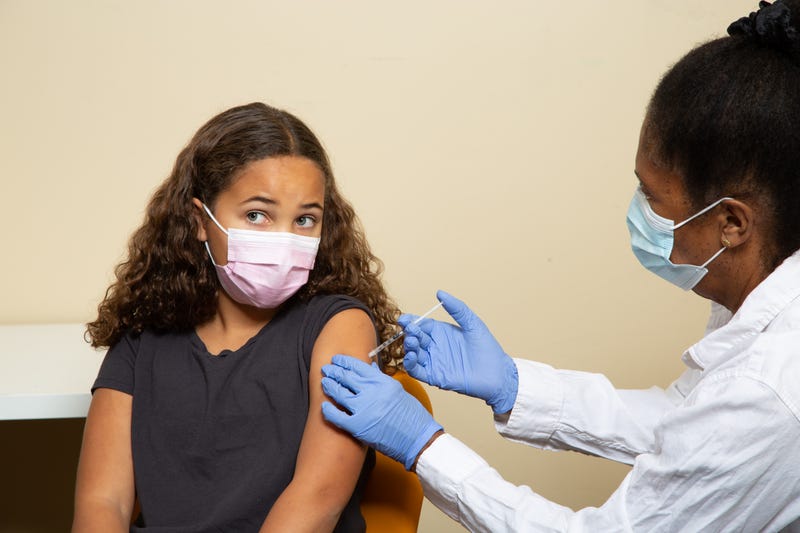
Children are the last vulnerable population to be eligible for the COVID-19 vaccine, and those aged 5-11 might be able to receive their first dose by the end of next week.
The U.S. Food and Drug Administration is expected in the coming days to follow an advisory panel's recommendation to issue an emergency use authorization for the two-dose Pfizer vaccine. Then, another panel advising Centers for Disease Control and Prevention could make its own recommendations next week.

Dr. Erica Pan, an epidemiologist with the California Department of Public Health, told KCBS Radio in an interview that the state is prepared and ready to start administering the vaccine as soon as it's approved.
"There is about 3.5 million children in this age group, and this is our opportunity to offer vaccines to protect another 9% of our population," she said. "We will have more than 1.2 million doses the first week the vaccine is fully approved."
Six million children in the U.S. have tested positive for COVID-19 during the pandemic, although hospitalizations and deaths are rarer in children than other age groups.
Children's vaccine doses will be lower than those for adults, but Pan said it'll be just as effective.
"The clinical trials have enrolled over 4,000 children ages 5-11 demonstrating that this vaccine is safe and effective in this age group," she explained. "And there is a strong antibody response in children who receive the vaccine, and over 90 percent efficacy."
Once the vaccine is available for children, some might need a little distracting if they’re afraid of needles.
"There is a lot of things you can do to distract children. We squeeze children's hands and try to distract them it actually relaxes them to a certain extent," Dr. George Rutherford, Director of Prevention and Public Health Group at UCSF, told KCBS Radio in an interview.
Rutherford added that adults need to be upfront with their children, clearly communicating what the vaccine is and why it's important.
"They can process this stuff," he said. "We are doing this to protect them, to protect their grandparents. It's just something that has to be done."

